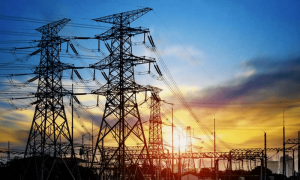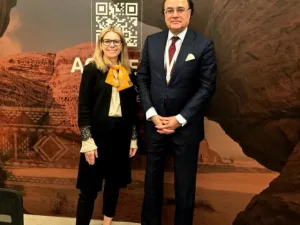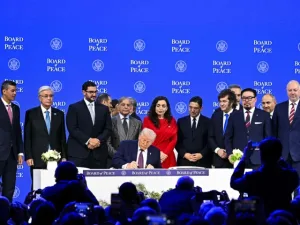Pakistani Scientists Achieve Breakthrough in Producing Hydrogen from Polluted Water
ES Mag
Two Pakistani scientists associated with the Royal Melbourne Institute of Technology (RMIT) have achieved a major breakthrough by using heavy metals present in polluted water as catalysts for the production of green hydrogen.
This development will not only reduce the reliance on clean water for green hydrogen production but will also help recycle contaminated water.According to a 2021 United Nations report, 80 percent of the world’s wastewater is not treated again and is released into rivers, lakes, and other sources of clean water, causing environmental destruction.
In this context, the research by Pakistani scientists is a significant step toward addressing the global water crisis and meeting energy needs.Pakistani scientists Dr. Muhammad Haris and Professor Nasir Mahmood, in collaboration with researchers from the University of Melbourne and the University of New South Wales, have discovered a cheap and effective method to produce green hydrogen from contaminated water.Both scientists are associated with RMIT’s Innovation Platform, which focuses on extracting clean energy from seawater and polluted water.
According to the research published last month in the ‘ACS Journal of Electrochemistry,’ heavy metals present in polluted water, such as chromium, nickel, and platinum, were used as catalysts.Green hydrogen is an emerging energy source that is renewable and environmentally friendly. However, its production typically requires clean water, which deepens the crisis in water-scarce regions.
This new technique developed by Pakistani scientists enables the production of green hydrogen using polluted water, which could help address the issue of water scarcity.Professor Nasir Mahmood, the lead author of the research, stated that his team has developed special electrodes whose surface consists of adsorbent carbon.
These electrodes attract heavy metals from polluted water, which then act as stable catalysts to accelerate the flow of electricity. This process enhances the speed of the electrochemical reaction, thereby speeding up the splitting of water into hydrogen and oxygen.
According to Professor Mahmood, these electrodes are made from agricultural waste, significantly reducing the cost of the system. This system not only processes polluted water but also helps reprocess agricultural waste. The oxygen produced during electrolysis can also be used for various purposes.







